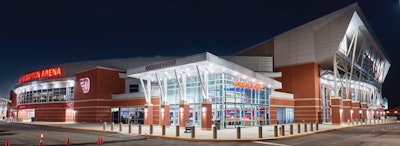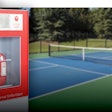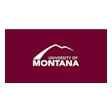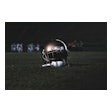![[Photos courtesy of the University of Dayton]](https://img.athleticbusiness.com/files/base/abmedia/all/image/2020/05/ab.safety520_feat.png?auto=format%2Ccompress&q=70&w=400)
When the University of Dayton wrapped up a $76.2 million upgrade of its arena last November, the school had no idea of the good nor the bad to come in 2020.
The men's and women's basketball teams played up to their brightened accommodations by putting together stellar seasons. The men finished with a 29-2 regular-season record, going 18-0 in the Atlantic 10 Conference. Were they to go on to win the A-10 tournament in Brooklyn, experts were predicting a coveted No. 1 seed in the NCAA tournament bracket. The women's team was on a similar track, finishing 25-8 overall, including 15-1 against A-10 opponents.
Combined, it was likely the greatest basketball season in the school's history, but the Flyers would not wear glass slippers this year. Instead, the small university in Ohio began navigating not roads to Final Fours but a nightmarish pandemic that would bring college athletics to a standstill and put arena operators on high alert.

Senior associate athletic director Scott DeBolt, who serves as executive director of the University of Dayton Arena, points out that within one month, the venue was slated to play host to the women's A-10 tournament, Ohio's high school boys' and girls' basketball tournaments, and the so-called "First Four" March Madness games, which complete the bracket of 64 every year. Given that schedule, DeBolt and his team at the arena started implementing some new cleaning protocols.
"We started a little bit earlier," DeBolt says. "Not necessarily sanitizing the whole building, but we started some areas of improved cleanliness where we were wiping down door knobs and faucets and doing all that stuff toward the end of our regular season."
As news of the pandemic spread, more precautions were put in place. Leading up to the women's A-10 tournament and the boys' high school tournament, DeBolt says the arena started implementing additional sanitizing measures.
"During that process, we were starting to ramp up with some more things — adding more hand sanitizers, not only around the restrooms but around the entrances and work areas, and again just constantly cleaning certain areas," he says.
After getting through the A-10 women's tournament, which the women Flyers won with a 52-48 victory over Virginia Commonwealth on March 8, things started to change across the country. Reports began to surface of more games and tournaments being cancelled or postponed. Nevertheless, DeBolt had to proceed as though everything was going ahead as planned.
"It was kind of a unique week, because we were scheduled to have high school basketball boys' playoffs on Tuesday, Wednesday, Thursday, Friday and Saturday — that leads right into Selection Sunday," DeBolt explains. "Tuesday's double-header of the boys' tournament went on as scheduled, but then that day was the mandate here in Ohio that you couldn't gather more than 100 people."
Per the governor's orders, Wednesday's games were played in front of limited fans, but by Thursday, March 12, the boys' tournament had been cancelled entirely. That's about the time the stark reality of the situation started to set in. Coaches, administrators, players and fans were just beginning to grasp the gravity of the situation.
Following the cancellation of the high school tournament, things took another dark turn when the A-10 men's tournament was cancelled along with nearly every other college conference tournament in the country. After that, all bets were — quite literally — off.

As host to the First Four, UD was in constant contact with the NCAA on its decision-making process.
"I know probably 10 different scenarios that they were looking at and just trying to work through every possible scenario out there and seeing what was possible and what wasn't possible," DeBolt says.
Ultimately, the NCAA played it safe and cancelled its entire tournament, leaving Dayton and its gleaming arena — new court, two new suites, new lights, new paint job — to serve a new purpose.
"We were hosting the First Four that following week, so we had started our preparations, adding decorations throughout that week," DeBolt says. "So we were kind of three-quarters of the way through when we finally got word that it wasn't going to happen."
At that point, the University of Dayton halted everything, and DeBolt and other administrators at the school took a little time to "figure out exactly what was going on."
"Obviously, Selection Sunday was a little different day than it normally was for us when we normally do a complete court changeover," DeBolt says, "but we'd gotten initial word on that day of the possibility of becoming a testing site for COVID-19 in our parking lots and partnering with Premier Health and CompuNet."
By 4 p.m. that Sunday, the parking lot at UD Arena had multiple tents and cones set up so that by Tuesday morning, people could get tested for COVID-19. The conversion of the arena into an ad-hoc testing site meant a whole new set of challenges and cleaning protocols for the venue.
"We're actually getting ready to implement the Clorox 360 system that our trainers use — it's an electrostatic cleaner that basically you can sanitize and clean a large area in a quick amount of time," DeBolt says. "We'd actually started using that a little bit more over at the arena in certain areas, and then through our procurement process we were able to get another system. Now we actually have two of them on site."
The arena began using the system on a daily basis.
"The staff from Premier Health comes inside daily to take breaks and have lunch and have their meetings in our Boesch Lounge here," DeBolt says, referring to the newly remodeled dining and concessions area at the arena, "so we sanitize that space every day. And that's probably one of the things we'll look at going forward — different areas that we need to sanitize and things like that."
It's not the ending the Flyers or their fans had in mind for this season, nor the role they thought their newly refurbished arena would be playing this spring. However, DeBolt prefers to look at the big picture.
"We have a lot of things going for us, and we're really proud of our teams, but to see it come to an abrupt halt, that's been hard," he says. "But in the long run, you have to look out for everyone's health and wellbeing, and we're really proud to be able to offer our space up as a testing site and continue to move forward as best we can."
This article originally appeared in the May 2020 issue of Athletic Business with the title "Within hours, Dayton's revamped arena went from 'play-in' central to testing center." Athletic Business is a free magazine for professionals in the athletic, fitness and recreation industry. Click here to subscribe.

































